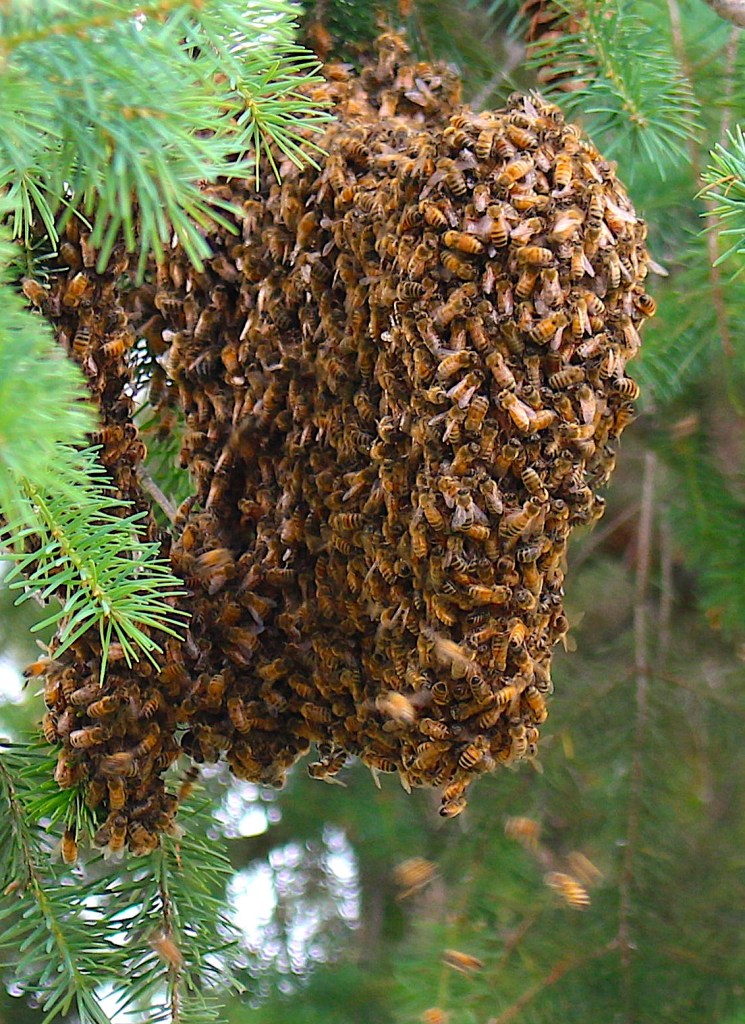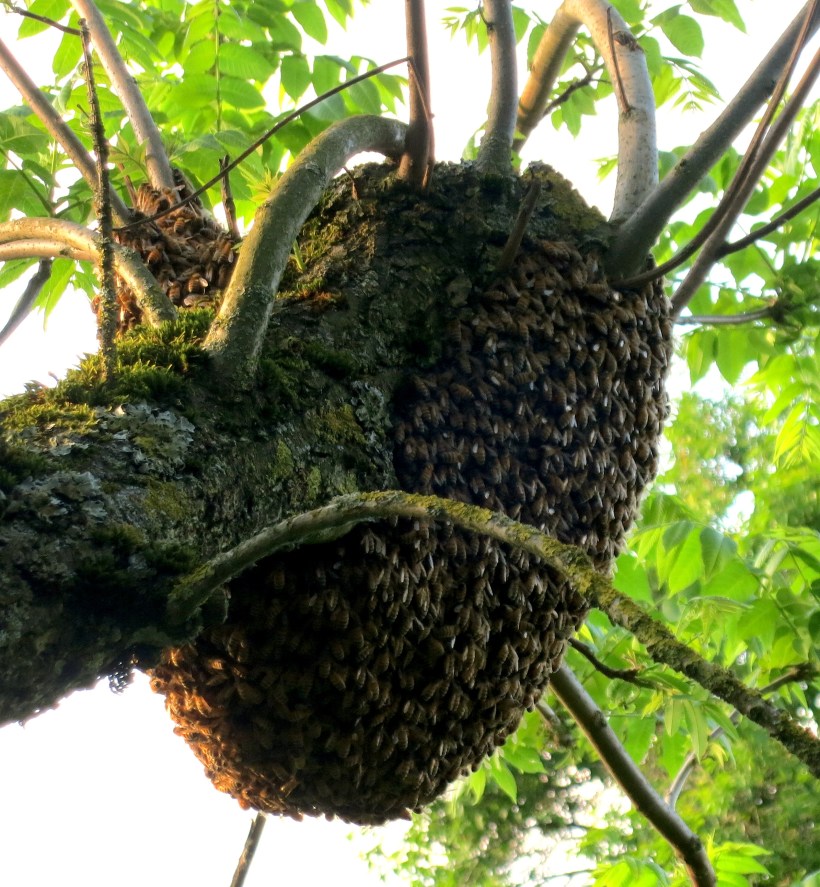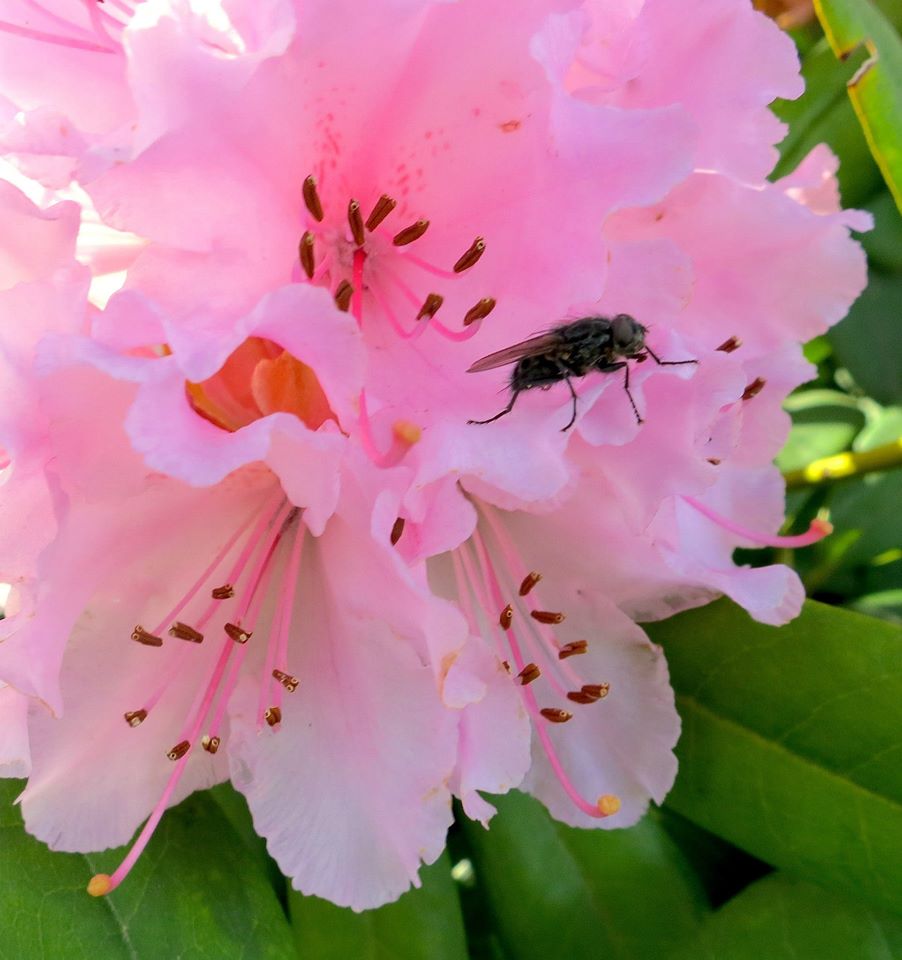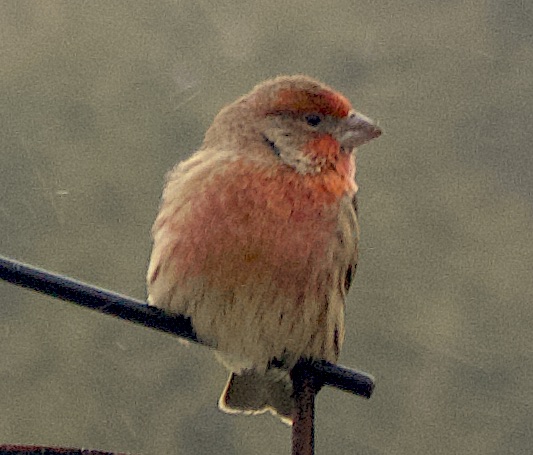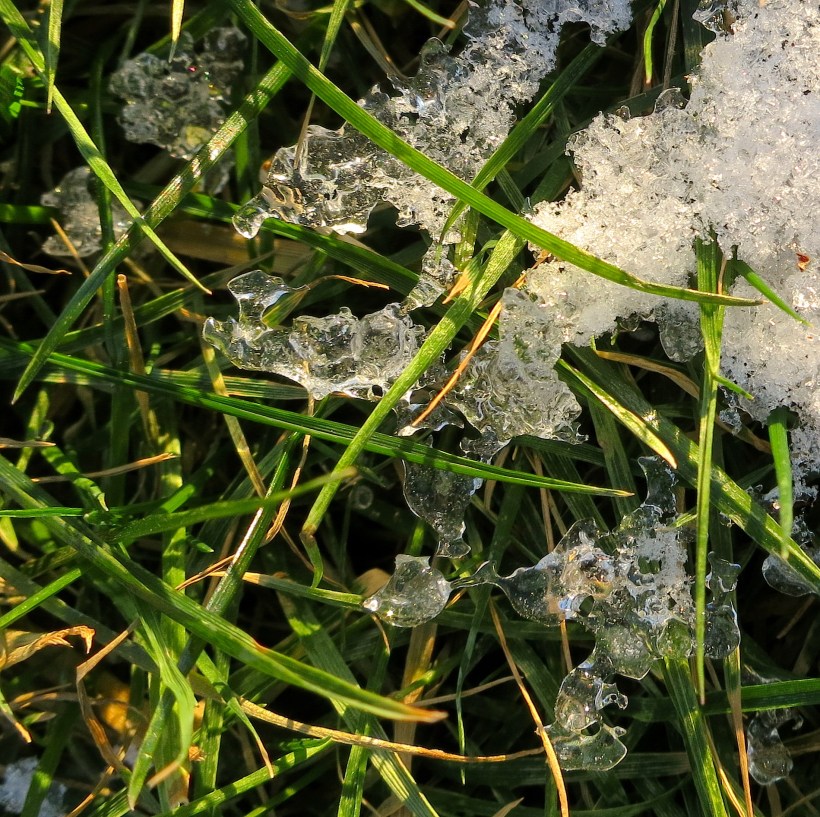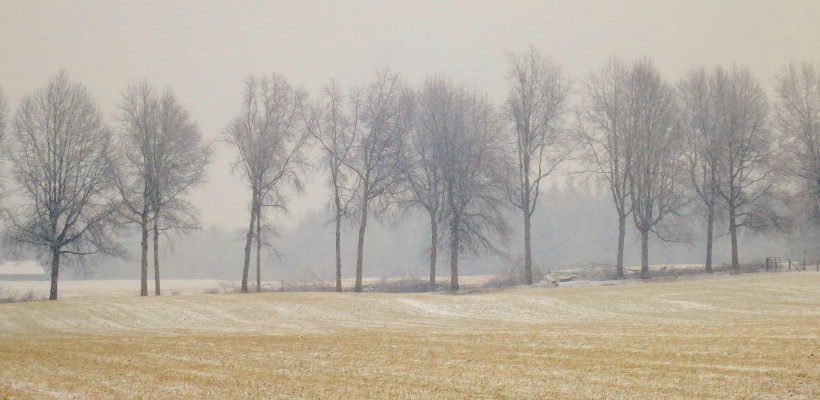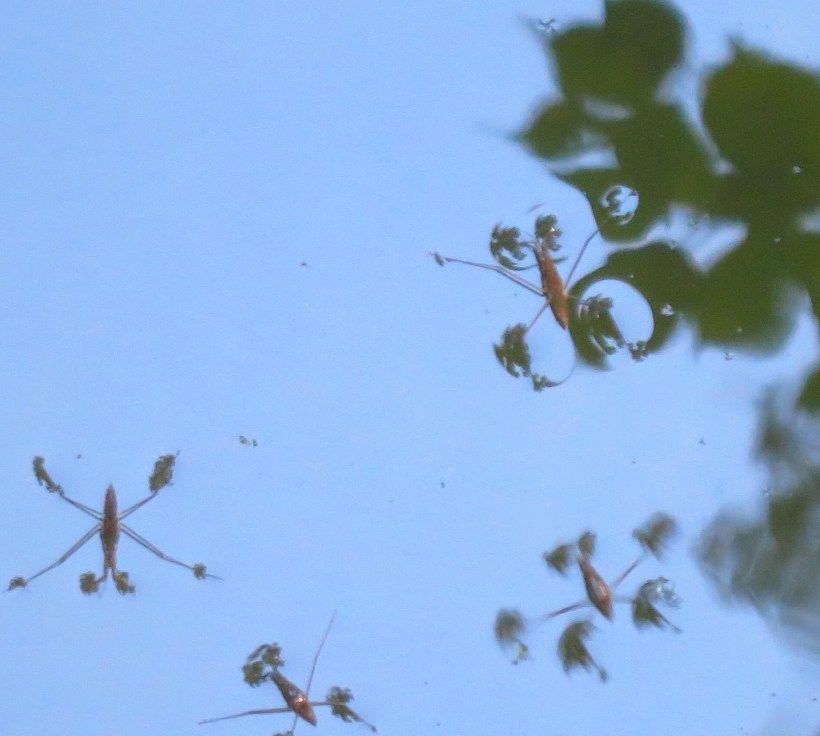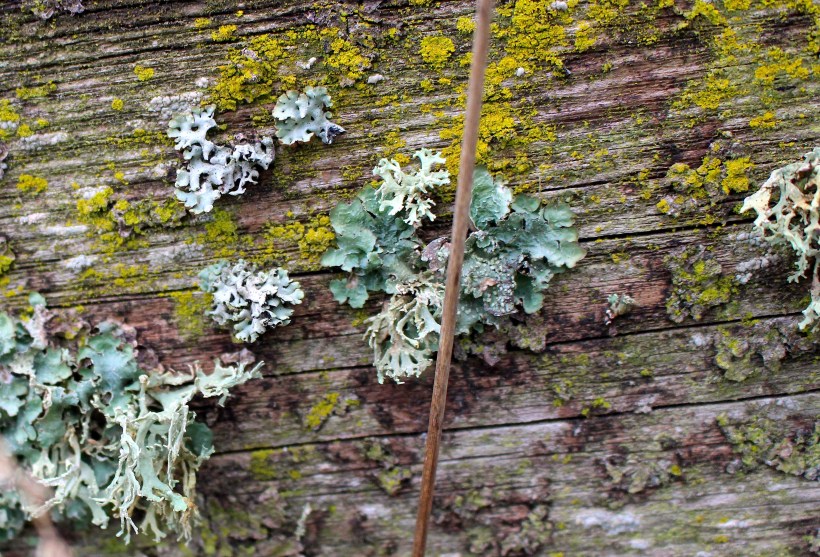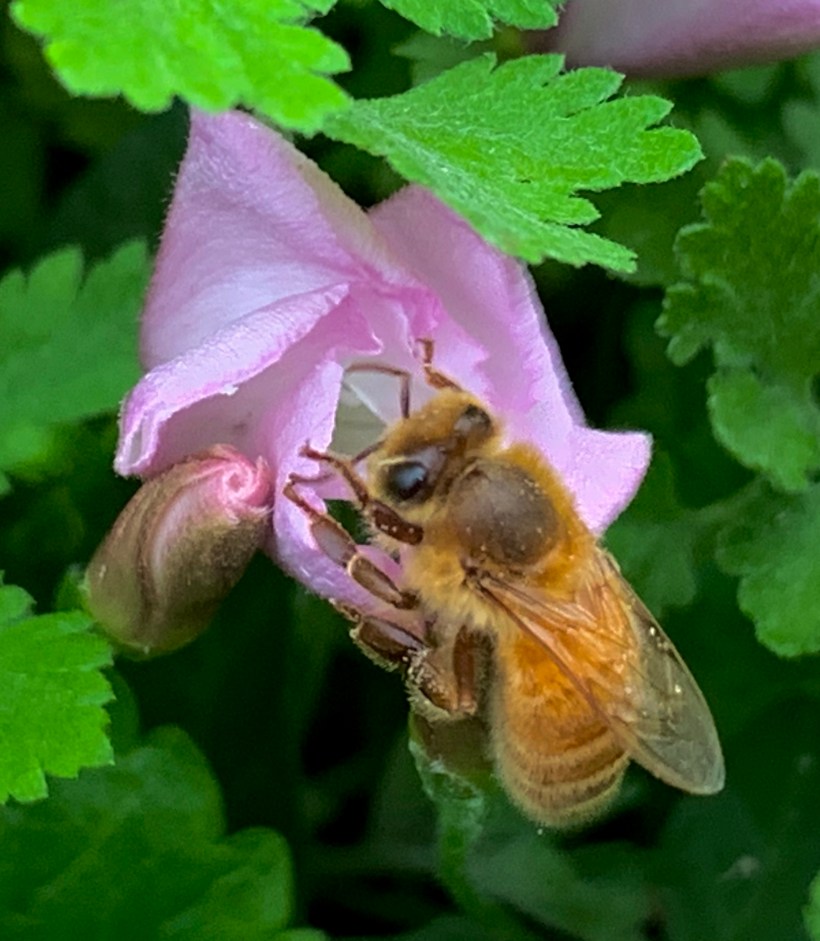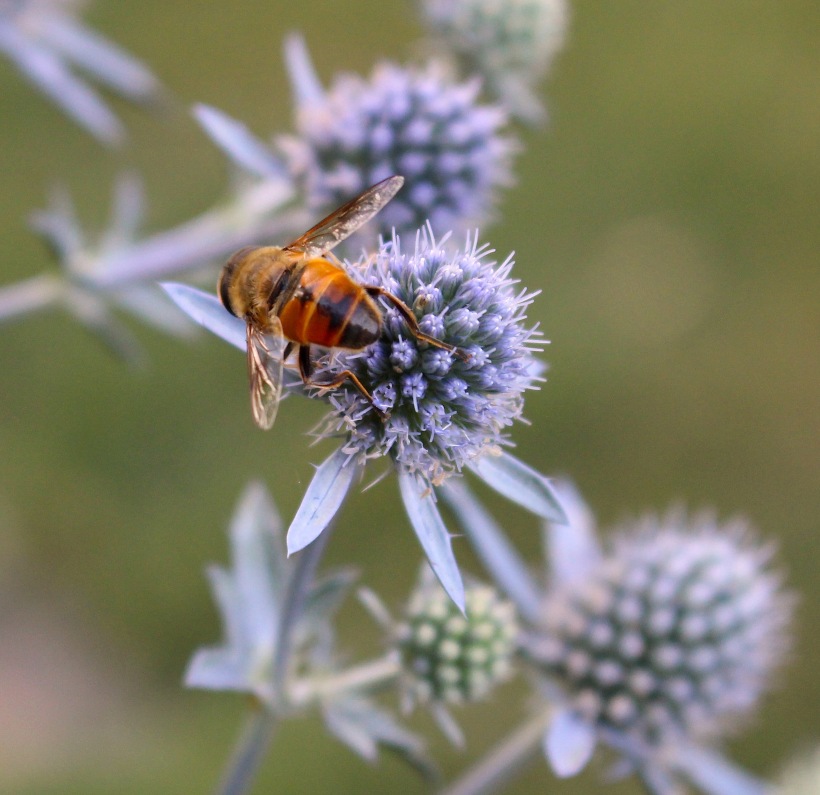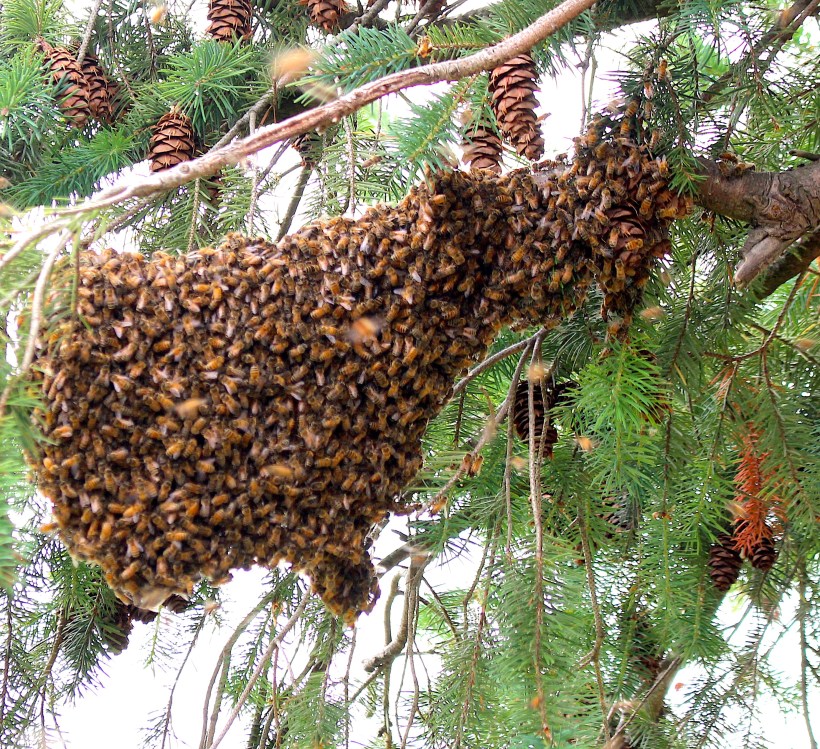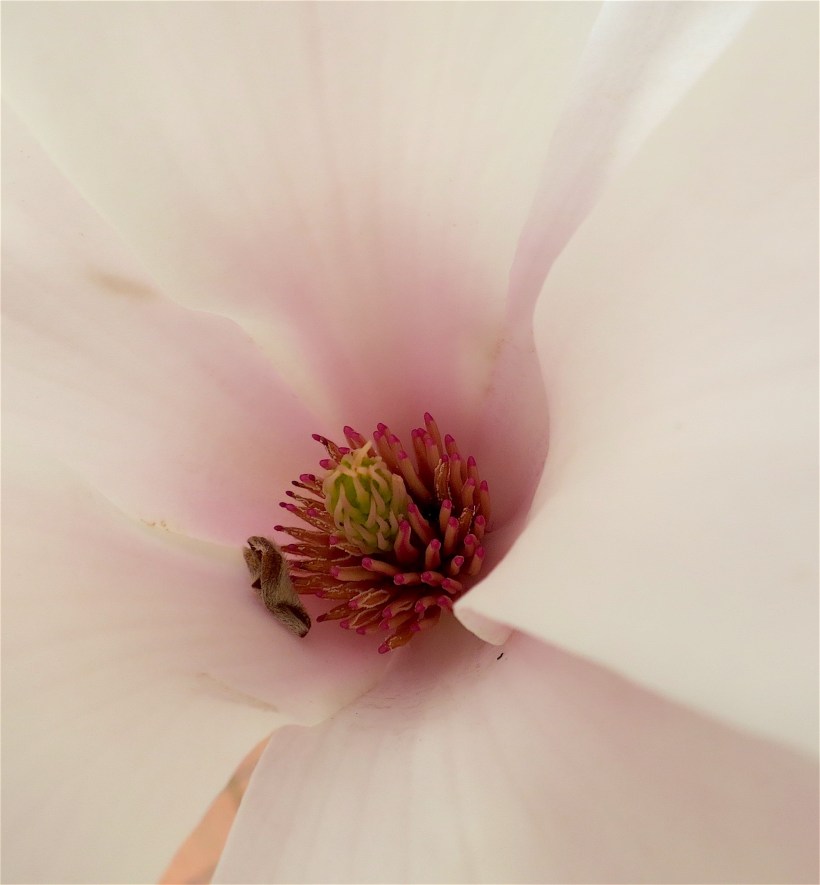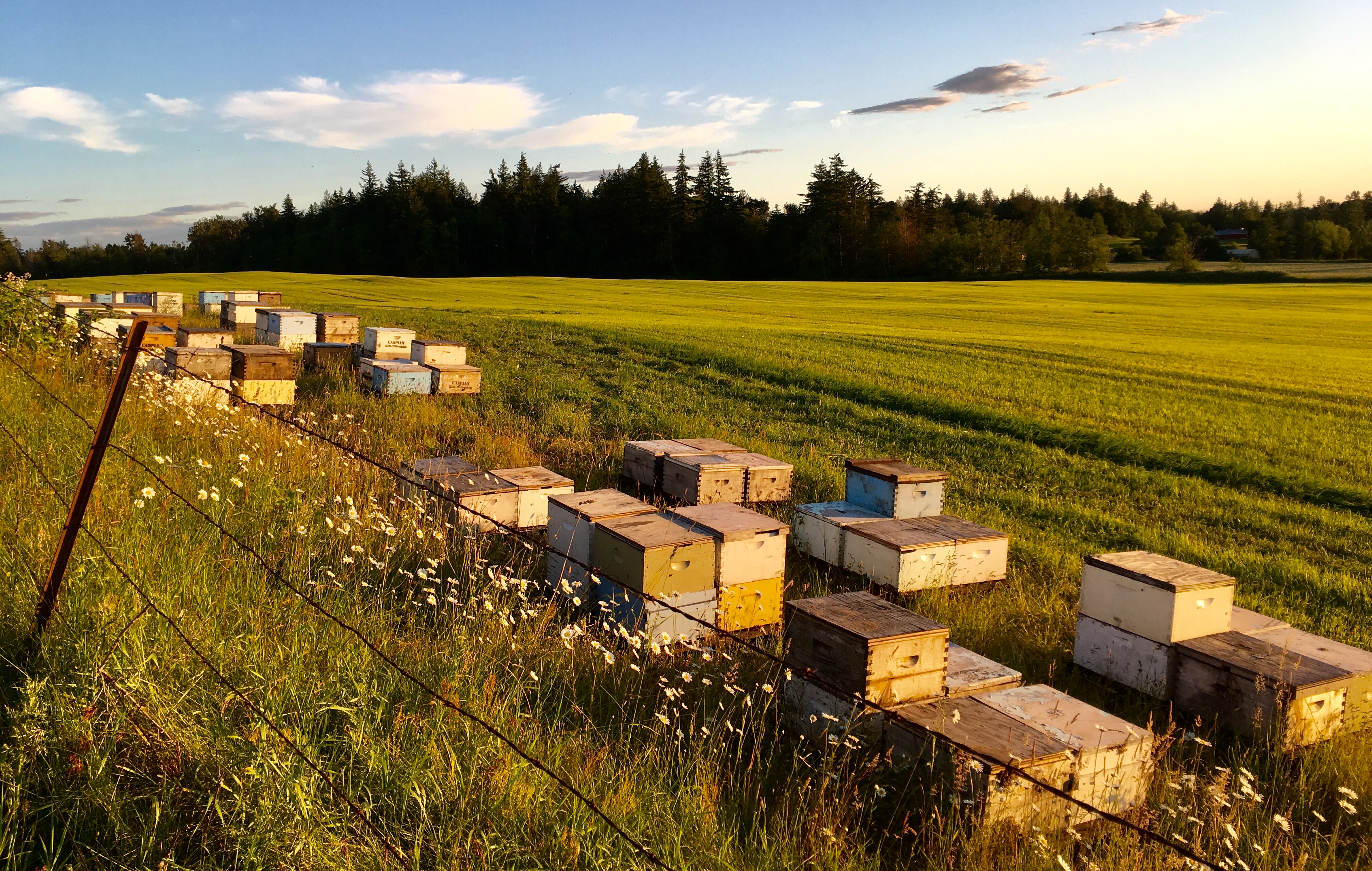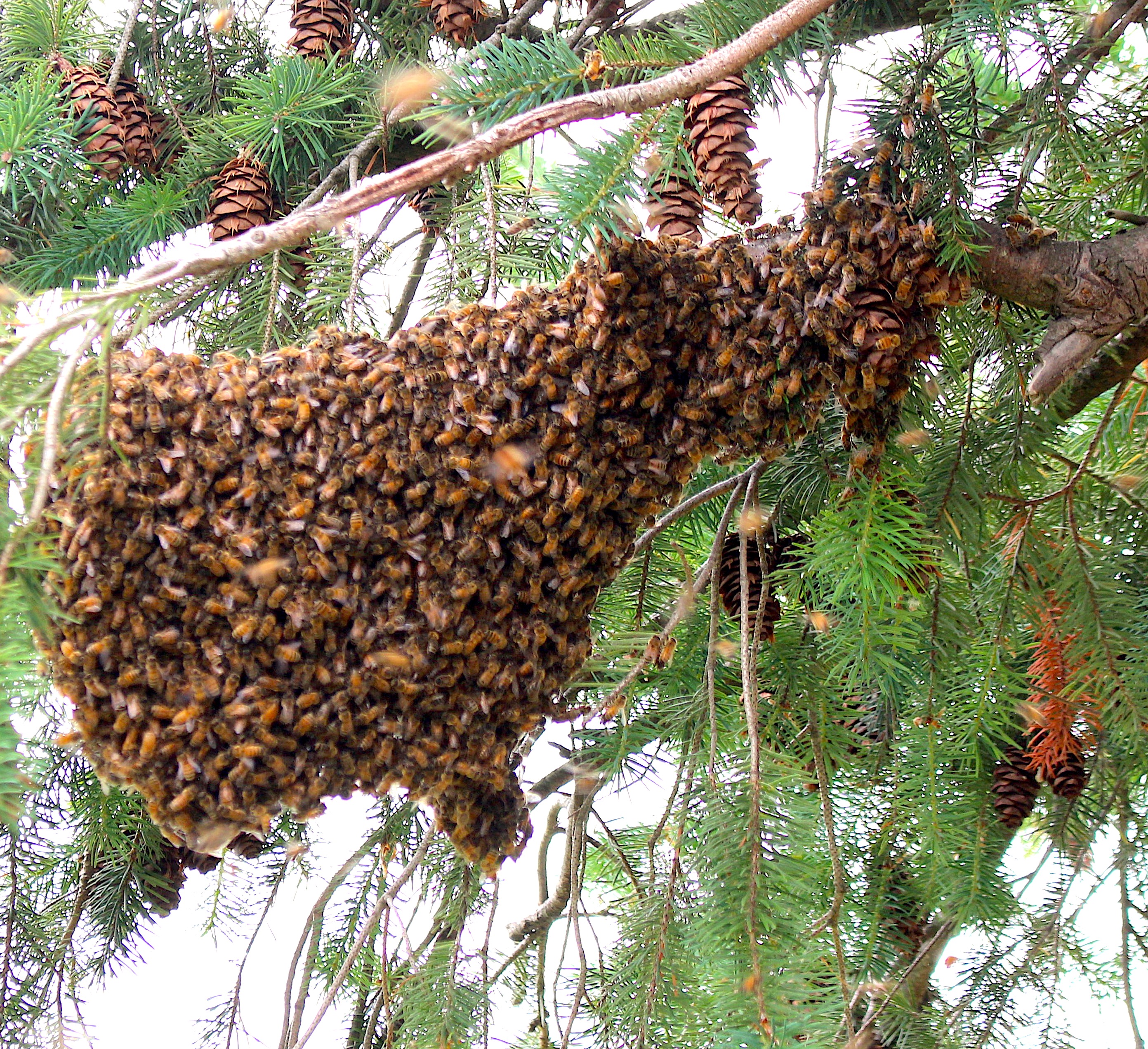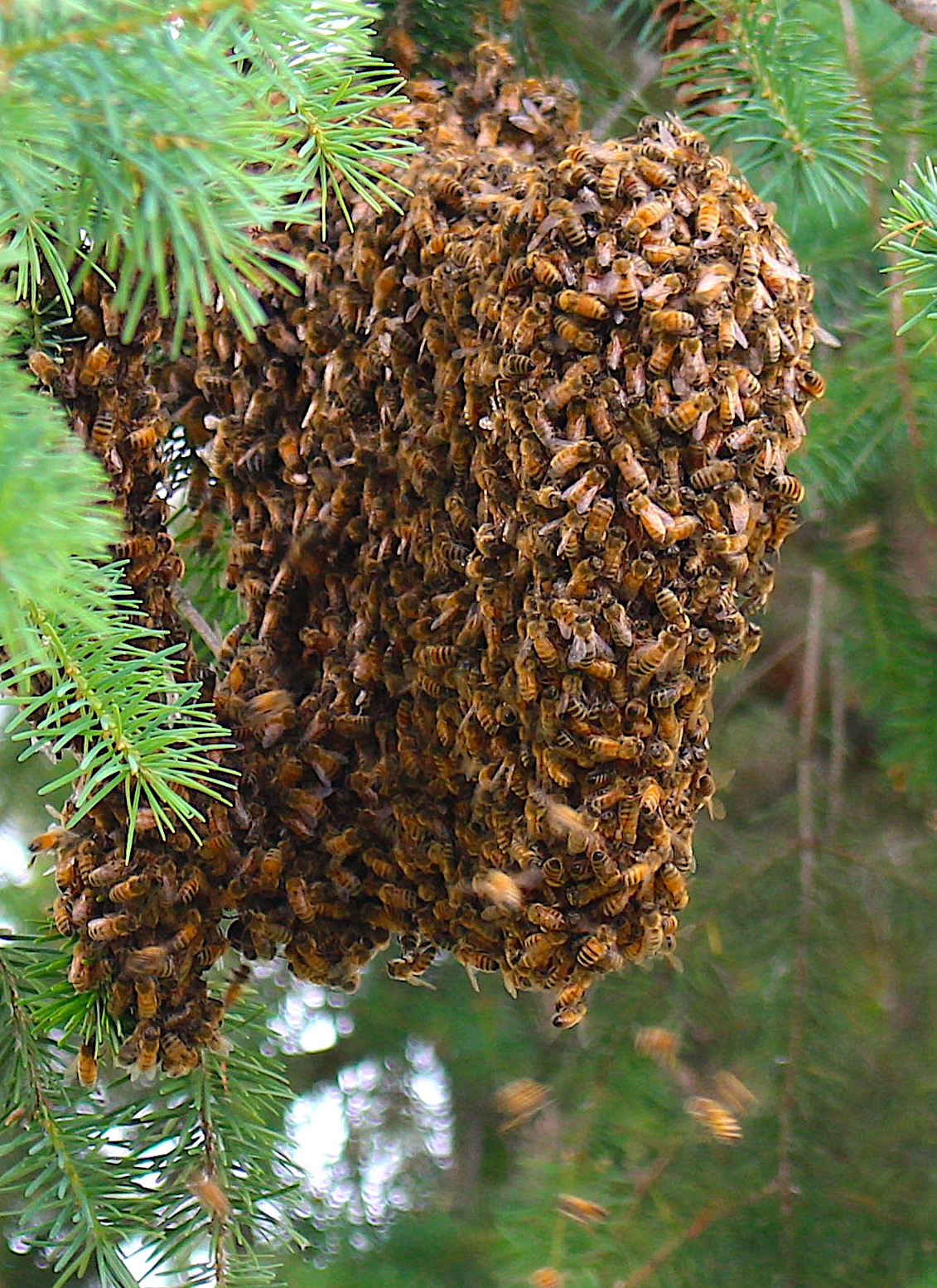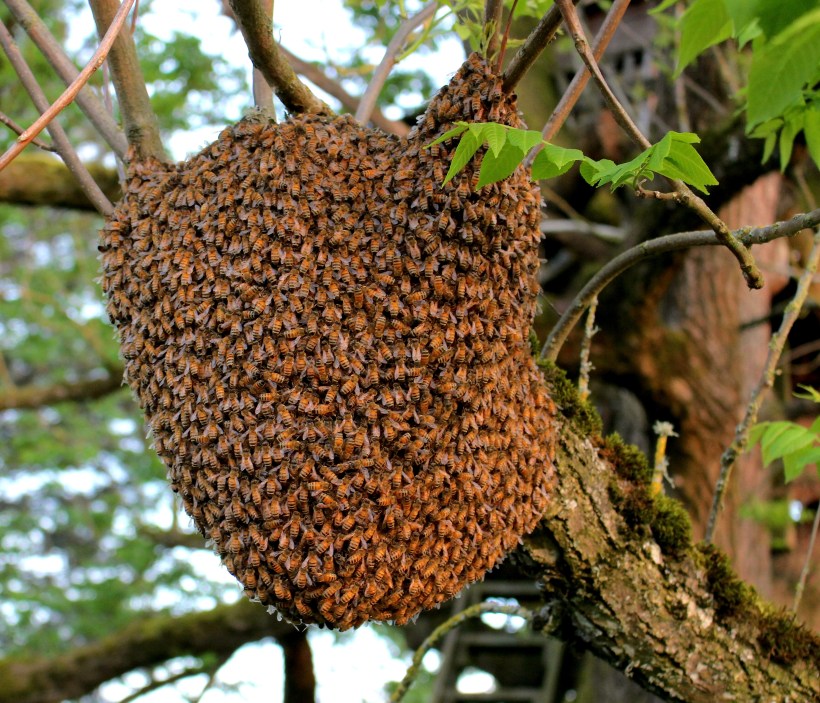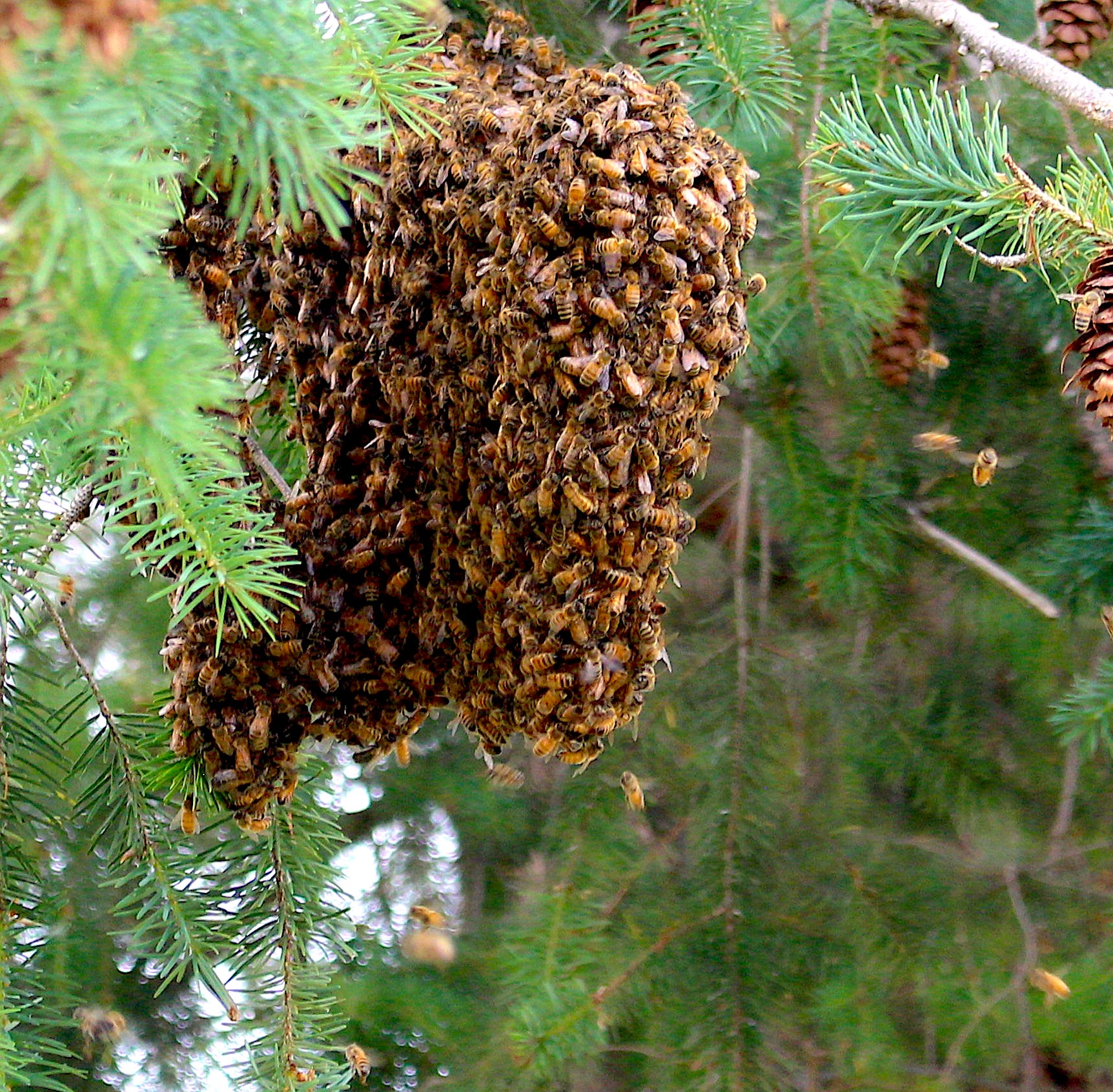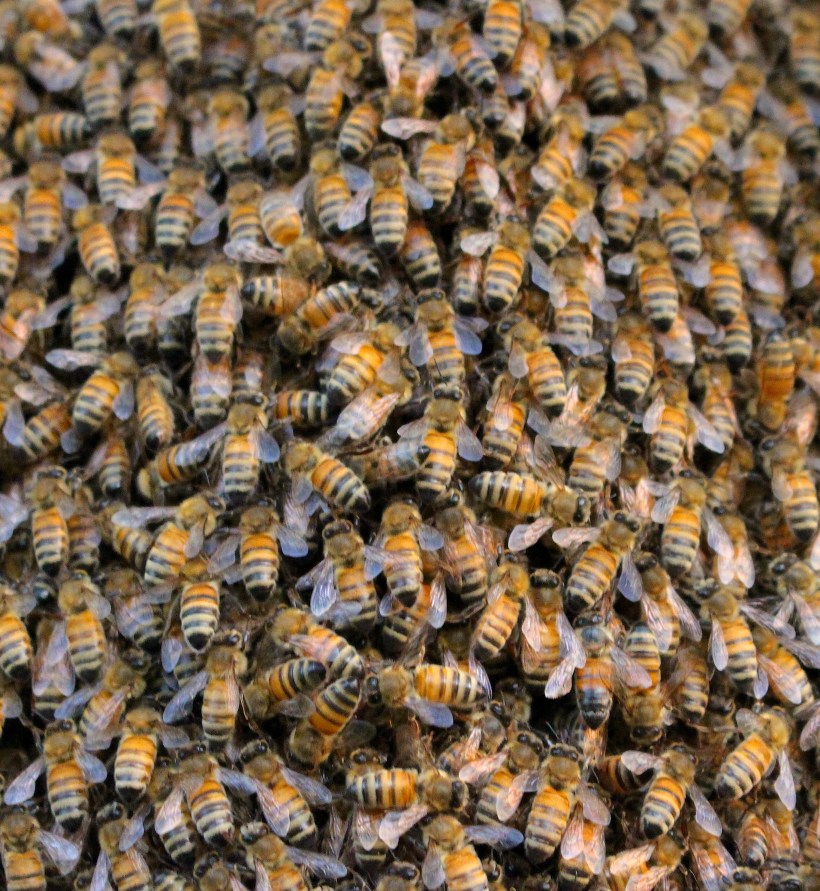
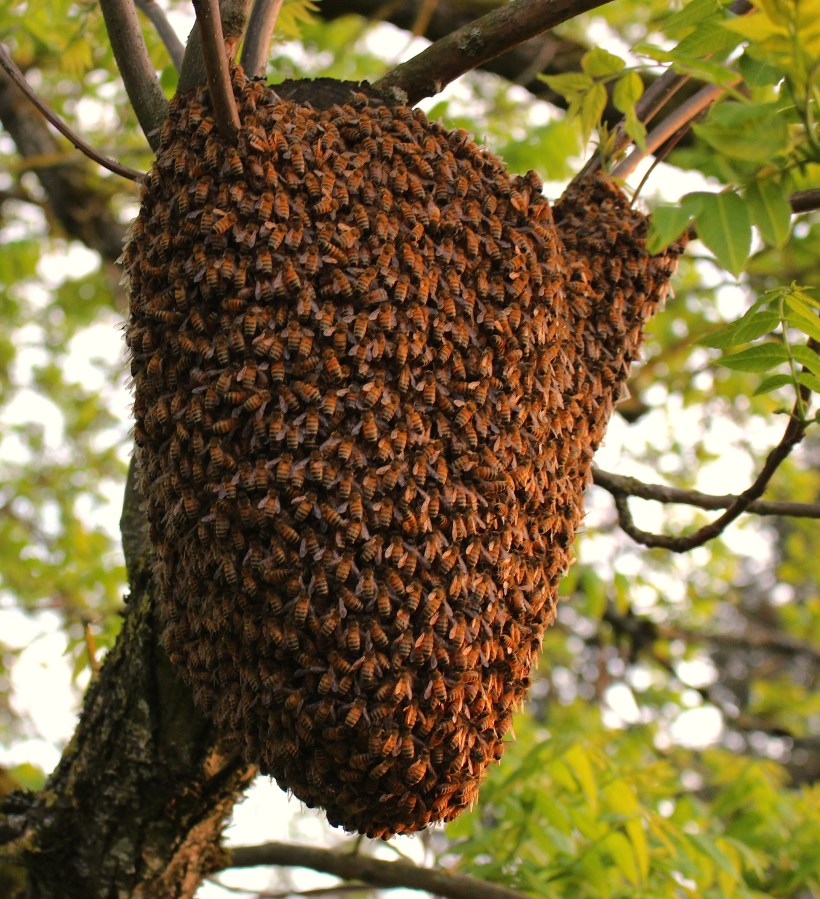

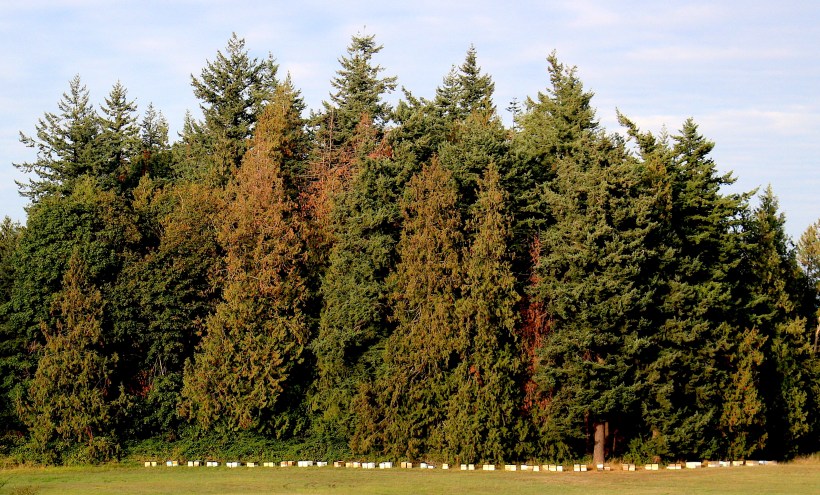
If you talk to him,
he will not pretend to be
an ordinary man.
He won’t let on
he is one who isn’t afraid to hold
in his outstretched hands
the buzzing gold.
He won’t tell you he is the man who keeps farmers
warm in their livelihood,
or the man who keeps the grocery shelves
full, then adds, simply for good measure,
jars of his shining honey.
He won’t explain that he is the one
who sets his suffering neighbors
free from their pain
with gifts of jars that sting.
He won’t let on to be the lifegiver or a god.
He will pretend he is just an old man with sand-colored hair,
a blue truck heavy with breezy hives,
and a comb-spinner in his cellar.
~Sidney Hall Jr., from This Understated Land
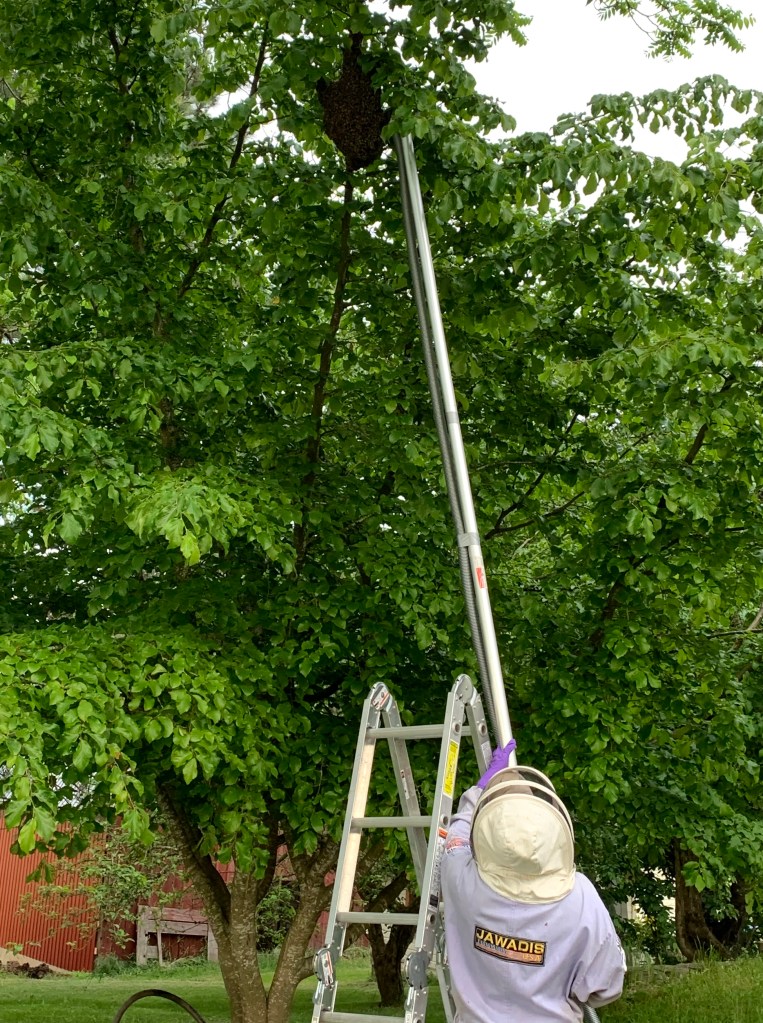
…The world was really one bee yard,
and the same rules work fine in both places.
Don’t be afraid, as no life-loving bee wants to sting you.
Still, don’t be an idiot; wear long sleeves and pants.
Don’t swat. Don’t even think about swatting.
If you feel angry, whistle.
Anger agitates while whistling melts a bee’s temper.
Act like you know what you’re doing, even if you don’t.
Above all, send the bees love. Every little thing wants to be loved.
~Sue Monk Kidd from The Secret Life of Bees
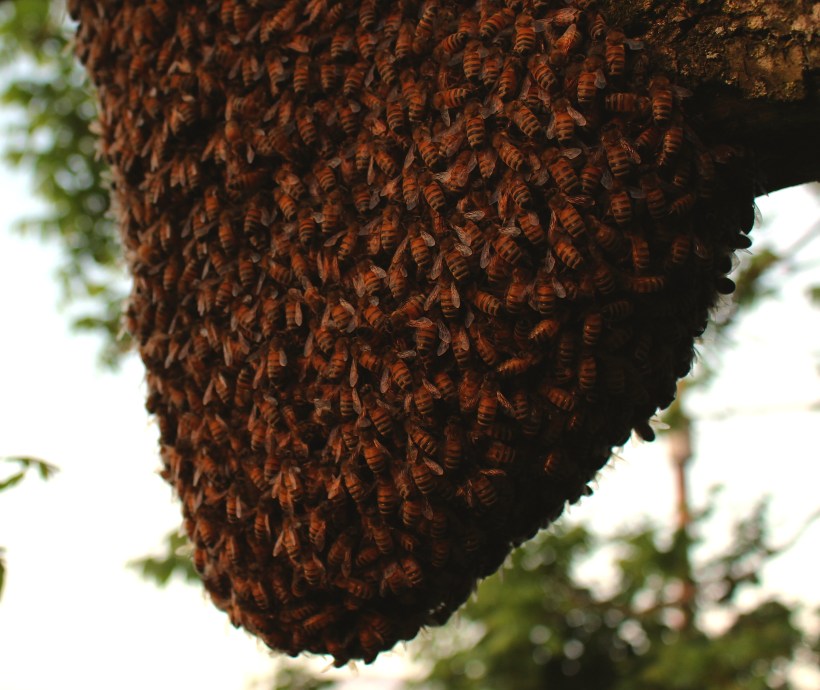
He calls the honeybees his girls although
he tells me they’re ungendered workers
who never produce offspring. Some hour drops,
the bees shut off. In the long, cool slant of sun,
spent flowers fold into cups. He asks me if I’ve ever
seen a Solitary Bee where it sleeps. I say I’ve not.
The nearest bud’s a long-throated peach hollyhock.
He cradles it in his palm, holds it up so I spy
the intimacy of the sleeping bee. Little life safe in a petal,
little girl, your few furious buzzings as you stir
stay with me all winter, remind me of my work undone.
~Heid E. Erdrich, from “Intimate Detail” from The Mother’s Tongue
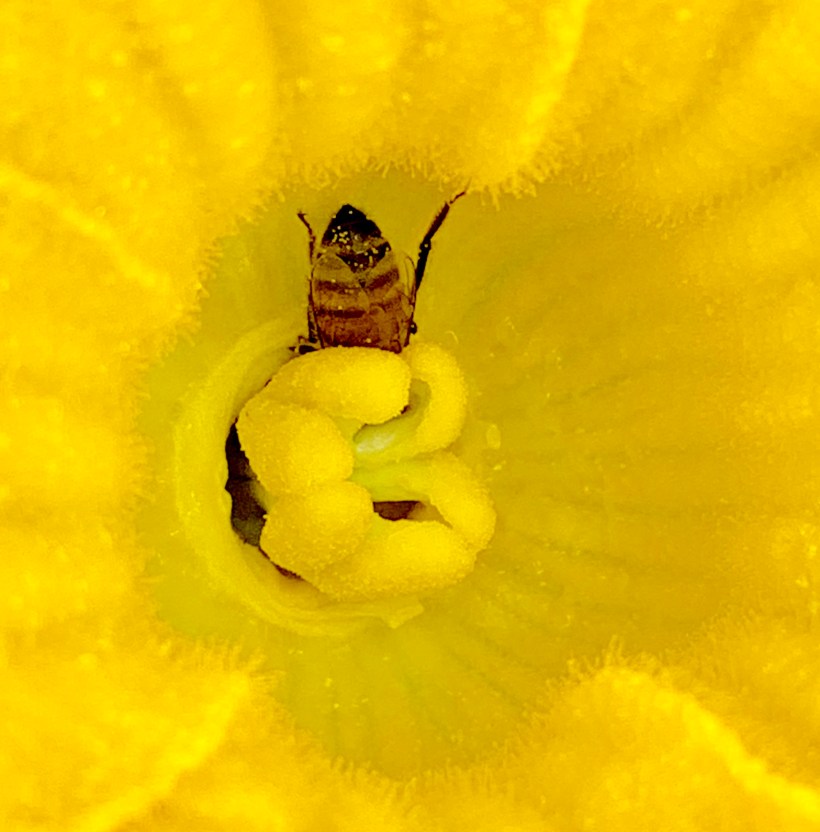
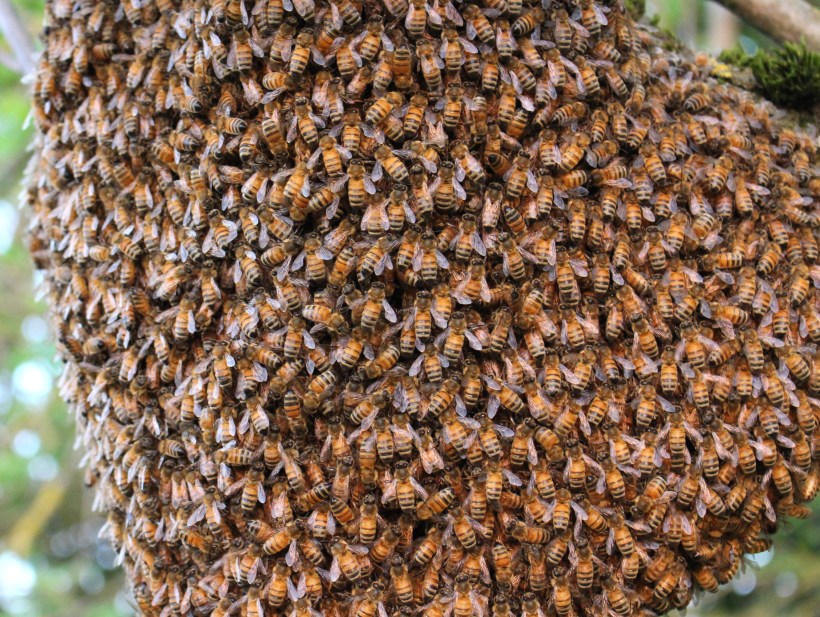
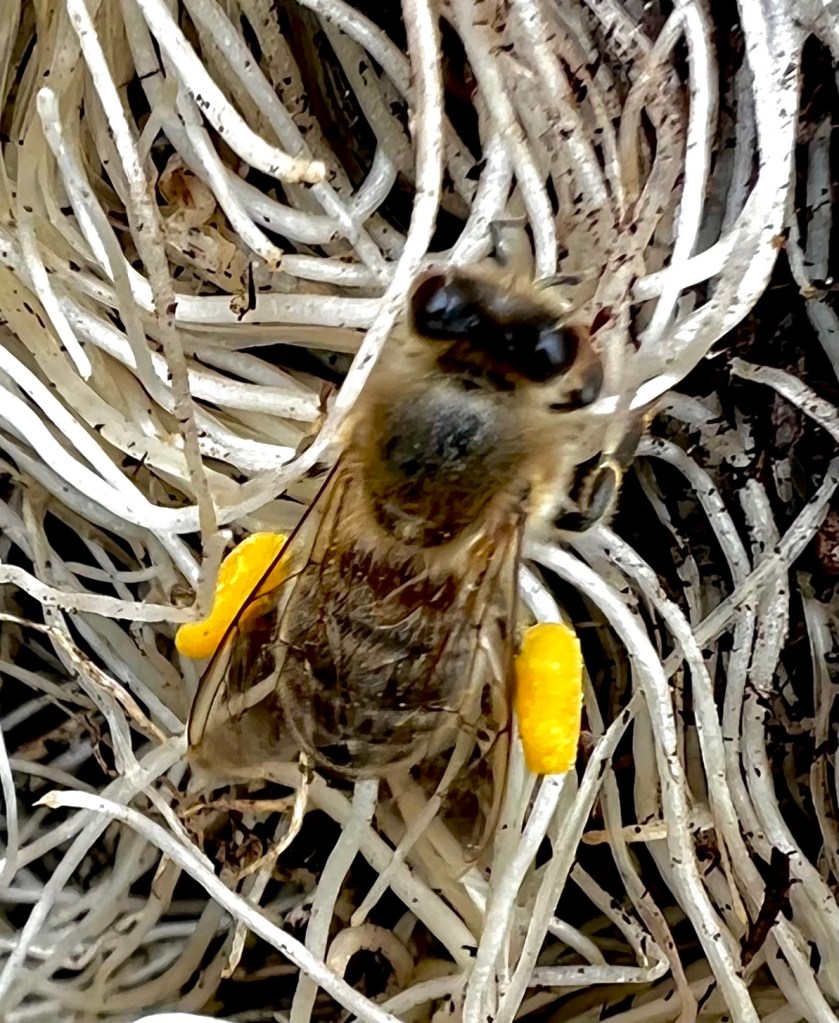
I am awed and inspired by apiarists. Our niece Andrea has been bee-keeping for over a decade, keeping hives at home in nearby Skagit Valley as well as moving them during growing season to pollinate the blooms at Floret Flower Farm and other beautiful places.
A beekeeper must be a loving and patient person; the bees know who loves them, and who will always be there to care for them.
An old Celtic tradition necessitates sharing any news from the household with the farm’s bee hives, whether cheery like a new birth or a wedding celebration or sad like a family death. This ensures the hives’ well-being and continued connection to home and community – the bees are kept in the loop, so to speak, so they stay at home, not swarm and move on to a more hospitable place.
Each little life safe at home, each little life with work undone.
Good news seems always easy to share; we tend to keep bad news to ourselves so this tradition helps remind us that what affects one of us, affects us all.
These days, with instant news at our fingertips at any moment, bad news is constantly bombarding us. Like the bees in the hives of the field, we want to flee from it and find a more hospitable home.
Our Creator (the ultimate Beekeeper) comes personally to each of us to say:
“Here is what has happened. All will be well, dear one. We will navigate your little life together.”
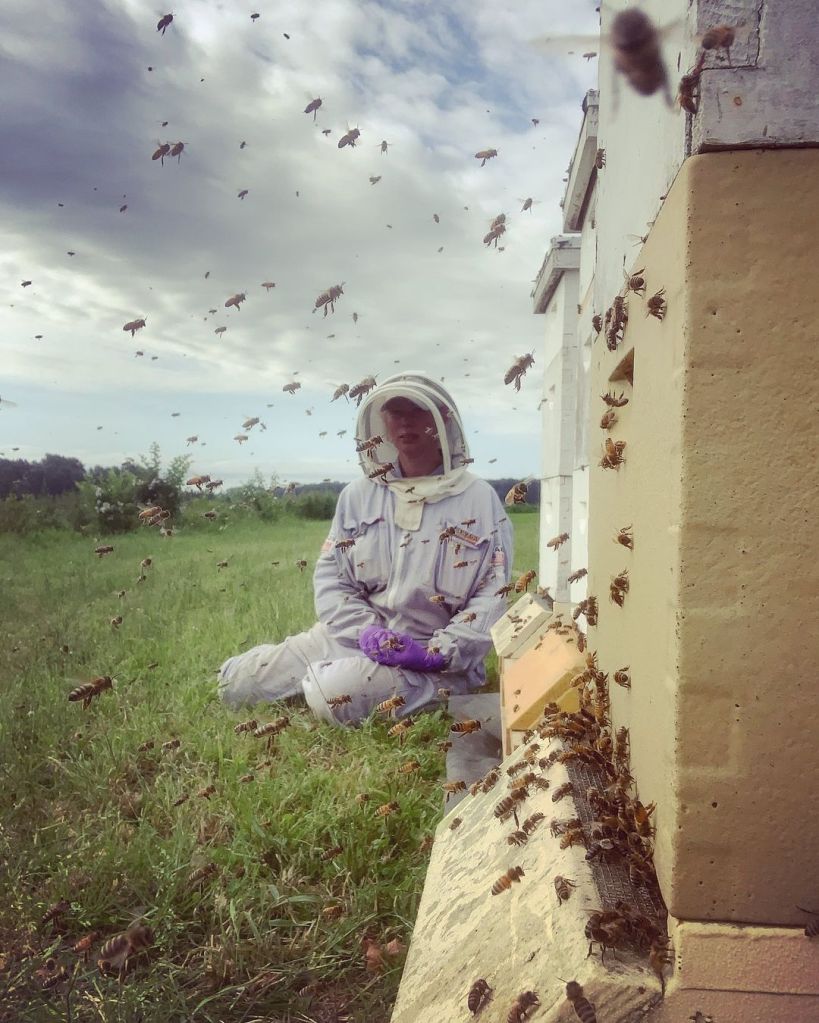
Bring home honey.
And what does Father do?
Bring home money.
And what does Mother do?
Lay out the money.
And what does baby do?
Eat up the honey.
~Christina Rossetti
Make a one-time or recurring donation to support daily Barnstorming posts
Make a monthly donation
Make a yearly donation
Choose an amount
Or enter a custom amount
Your contribution is deeply appreciated.
Your contribution is appreciated.
Your contribution is appreciated.
DonateDonate monthlyDonate yearly